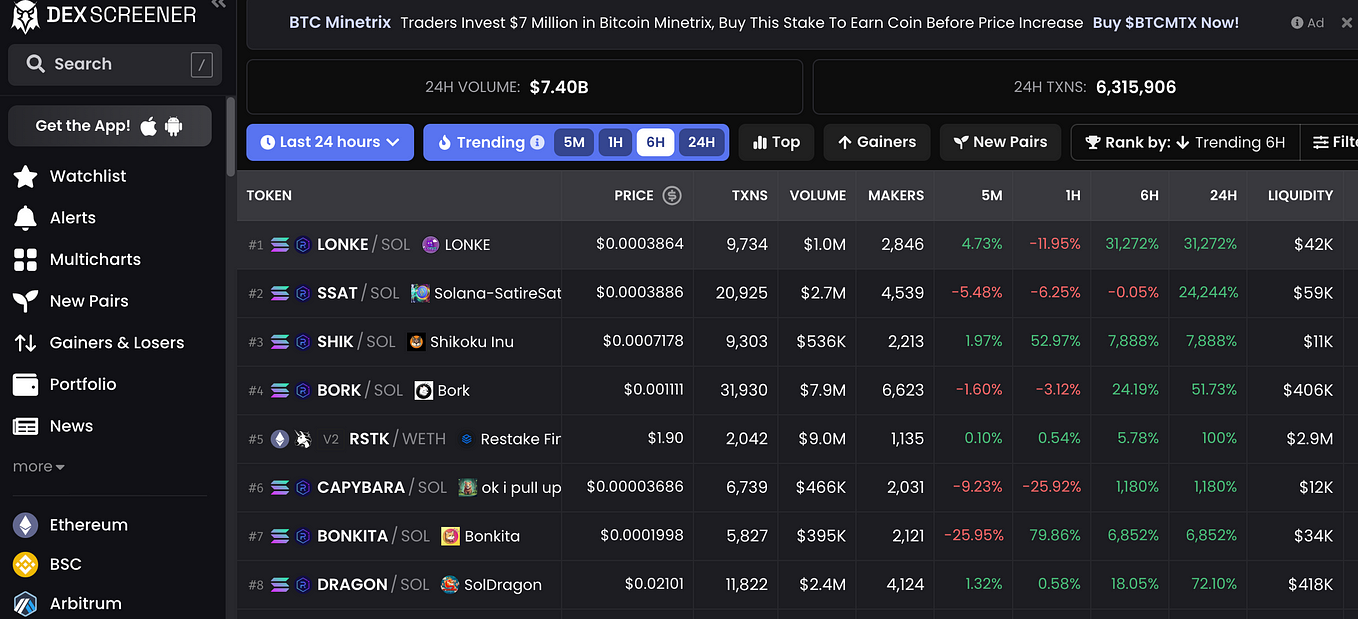Bitcoin ETFs Explained
The world of digital assets and cryptocurrencies has experienced incredible growth and innovation in recent years. The advent of bitcoin ETFs, which are gaining popularity among investors, is one of the most recent advances in this industry. This is especially true as the SEC contemplates approving a spot bitcoin ETF.
This article will provide a thorough explanation of exchange-traded funds (ETFs) for bitcoin investing, along with information on their features, advantages, and disadvantages.
For more insights and updates, consider joining our Telegram Channel for reliable crypto signals. Bitcoin etf
Bitcoin etf
A Bitcoin ETF: What Is It?
An exchange-traded fund (ETF) that monitors the price of bitcoin using futures contracts — derivative financial instruments that let investors make predictions about asset prices in the future — is known as a bitcoin ETF. Without actually possessing bitcoin, investors can have exposure to its price fluctuations by purchasing an exchange-traded fund (ETF).
Agreements to acquire or sell a certain quantity of bitcoin at a fixed price on a specified future date are known as bitcoin futures contracts. Investors can protect themselves from possible price fluctuations in the underlying asset — in this example, bitcoin — by using the futures market.
The first bitcoin ETF to trade on an exchange is the ProShares Bitcoin Strategy ETF (BITO), which made its debut on October 19, 2021.
For more insights and updates, consider joining our Telegram Channel for reliable crypto signals.
How Bitcoin ETFs Operate?
The main distinction between bitcoin ETFs and standard ETFs is that the former are based on the performance of bitcoin futures contracts, whereas the latter are based on conventional assets like stocks or bonds. The underlying bitcoin futures contracts and other financial instruments that are dependent on the price movement of bitcoin are invested in by the ETFs.
Like individual stocks, bitcoin futures exchange-traded funds (ETFs) are traded on stock exchanges, and the price of these funds is determined by the underlying bitcoin futures contracts they own. Just like with any other ETF, investors can purchase shares in a bitcoin futures ETF to have exposure to changes in the cryptocurrency’s price.
The main advantage of bitcoin exchange-traded funds (ETFs) is that they give investors an easy and cost-effective option to invest in bitcoin without having to buy and hold the cryptocurrency directly. Professional fund managers are in charge of these exchange-traded funds (ETFs) and are in charge of monitoring the underlying assets, which include contracts for bitcoin futures, and making sure the ETFs follow the performance of bitcoin as closely as possible.
For more insights and updates, consider joining our Telegram Channel for reliable crypto signals.
Benefits and Drawbacks of Buying Bitcoin ETFs
Investing in bitcoin ETFs has a number of potential advantages, including the ease of trading bitcoin futures without needing to buy futures or own the cryptocurrency directly. Nevertheless, investing in bitcoin futures ETFs carries a number of possible hazards, such as volatility and liquidity risk.
Investors should weigh the benefits and drawbacks of investing in these special funds before thinking about acquiring a bitcoin ETF. Btc etf
Btc etf
Pros of Investing in Bitcoin ETFs
- Accessibility: Bitcoin ETFs are traded on stock exchanges, just like individual stocks. This makes them accessible to a wider range of investors, including those who may not have the technical expertise or resources to invest in bitcoin directly.
- Professional Management: The fund managers of a bitcoin ETF are responsible for overseeing the underlying assets and ensuring that the ETF tracks the performance of bitcoin as closely as possible. This can provide investors with a more hands-off approach to investing in the digital currency.
- Diversification: Investing in a bitcoin ETF can add a new asset class to your portfolio and help diversify your holdings. This can reduce the overall risk of your portfolio and increase the potential for returns over the long term.
- Convenience: Investing in a bitcoin ETF eliminates the need to directly purchase and hold bitcoin, which can be a complicated and time-consuming process. The ETF is managed by professional fund managers who oversee the underlying assets, including bitcoin futures contracts, and ensure that the ETF tracks the performance of bitcoin as closely as possible.
For more insights and updates, consider joining our Telegram Channel for reliable crypto signals.
Cons of Investing in Bitcoin ETFs
- Market Volatility: Bitcoin is known for its high level of volatility, and the price of bitcoin can fluctuate greatly in a short period of time. This can result in large losses for investors if they are not properly prepared for the potential ups and downs of the market.
- Liquidity Risk: The liquidity of bitcoin ETFs can be lower than other traditional assets, such as stocks or bonds. This can make it more difficult for investors to sell their shares or access their funds in a timely manner.
- Counterparty Risk: When investing in a bitcoin ETF, you are relying on the counterparty to fulfill their obligations under the futures contract. If the counterparty is unable to fulfill their obligations, it can result in losses for the investor.
- Regulatory Risk: The regulation of cryptocurrencies and bitcoin ETFs is still in its early stages and can be subject to change. This can result in uncertainty for investors and potentially impact the value of their investments.
In conclusion,
Purchasing bitcoin ETFs can provide investors with an easy and accessible means of being exposed to the fluctuations in bitcoin’s price without actually possessing the cryptocurrency. But just as with any investment, there are risks that buyers need to be aware of. Thus, before purchasing shares, it’s crucial to carefully weigh the advantages and disadvantages of investing in a bitcoin ETF.
For more insights and updates, consider joining our Telegram Channel for reliable crypto signals.
57
Crypto
Next Bull
Bitcoin
SEC
Cryptocurrency
57Follow
Written by Shogun Saski
More from Shogun Saski

Shogun Saski
Here is how I turned $517 to $21k trading crypto tokens during Christmas.
And no, this ain’t click bait. It’s a true story
4 min read
·
Dec 30, 2023
125
Shogun Saski
The Top 5 Cryptocurrencies to Invest in Right Now for the Next Bull Run
A range of tokens with varied chances for growth and innovation are going to significantly increase your rewards as 2024 approaches.
5 min read
·
Jan 4
72
1
Shogun Saski
Discover 3 FREE tools you can use to find and buy new gems before they moon.
Forget Coinbase and Binance — real gains happen before listing. By the time you are buying on CEXs, you’re someone’s exit strategy. This…
4 min read
·
Jan 4
71
1
Shogun Saski
6 Best Cheap Crypto to Buy Now Under 1 Cent
Uncover the six best crypto picks under 1 cent for November 27, offering accessible investment options for those looking to enter the…
6 min read
·
Nov 27, 2023
271
5
Recommended from Medium

 Smid
Smid
Discover Crypto Altcoins with 100x Potential Now
Discover Crypto Altcoins with 100x Potential Now
10 min read
·
Jan 12
58
 Aurora Grace
Aurora Grace
in
GamingArena
What are the 4 Cryptocurrency Predictions for 2024?
In the landscape of cryptocurrency, 2023 unfolded as a year of unprecedented growth and innovation. Bitcoin and Ethereum maintained their…
9 min read
·
Jan 4
82
1
Lists


Modern Marketing54 stories
·
376
saves
 Generative AI Recommended Reading52 stories
Generative AI Recommended Reading52 stories
·
633
saves
 Michel Marchand
Michel Marchand
in
Coinmonks
The Bull Is Back? Top 10 Cryptos to Buy on Coinbase in 2024
well . . . I’M back, shouldn’t that be enough?
21 min read
·
Dec 31, 2023
502
8
 Mike Coldman
Mike Coldman
Top 4 Crypto Gems Set to Explode in 2024 !
Unlock the Secret Strategies of Elite Investors and Transform Your Portfolio Overnight !
·
5 min read
·
Jan 8
264
6
 Crypto Insider Talks
Crypto Insider Talks
Shiba Inu Price Predictions 2024: The Million Dollar Question
4 min read
·
4 days ago
61
1 0xAnn
0xAnn
in
Crypto 24/7
Making Money Scalping Crypto
“Why do you work 9–5 when crypto trading is basically free money?”
·
7 min read
·
Jan 10
589
10










![[ℕ𝕖𝕧𝕖𝕣] 𝕊𝕖𝕝𝕝 𝕐𝕠𝕦𝕣 𝔹𝕚𝕥𝕔𝕠𝕚𝕟 - And Now What.... Pray To The God Of Hopium?](https://cdn.bulbapp.io/frontend/images/79e7827b-c644-4853-b048-a9601a8a8da7/1)





![[LIVE] Engage2Earn: auspol follower rush](https://cdn.bulbapp.io/frontend/images/c1a761de-5ce9-4e9b-b5b3-dc009e60bfa8/1)













